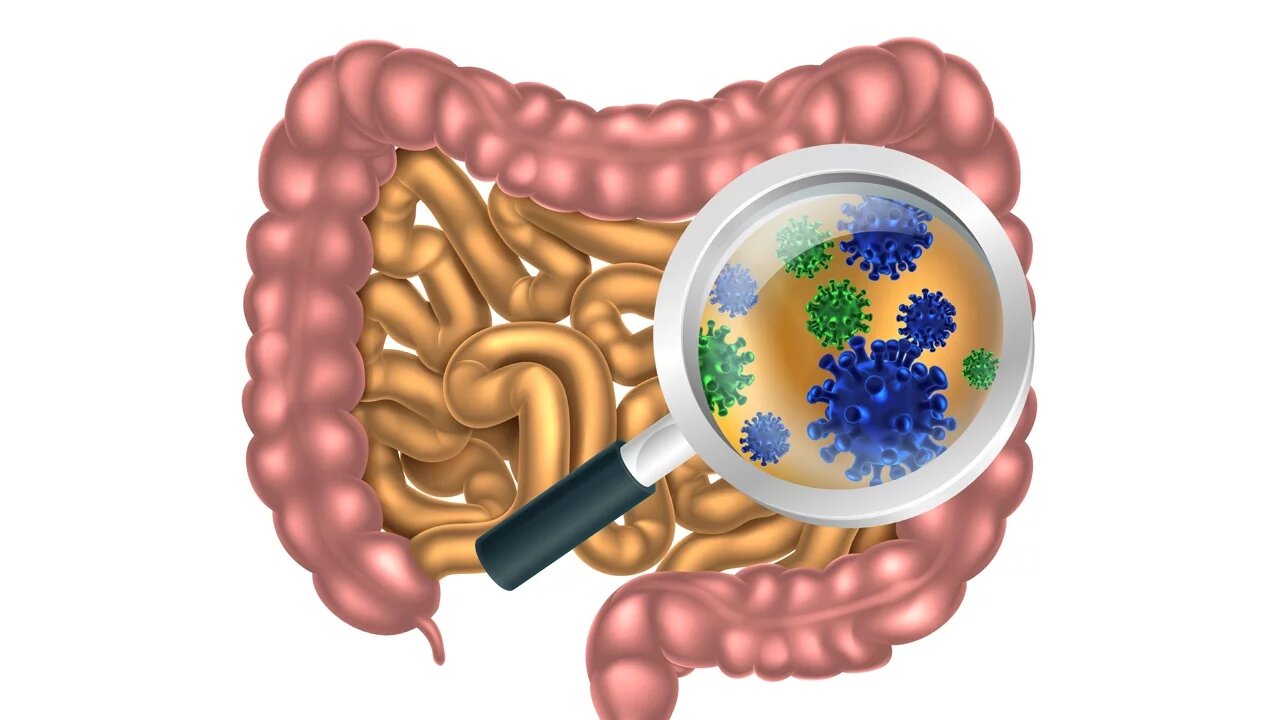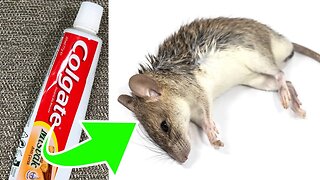Premium Only Content

6 Steps to Heal Leaky Gut and Autoimmune Disease Naturally
Leaky gut syndrome is a condition that millions of people have, and don’t even know it.
From the sound of it, you might think leaky gut syndrome only hurts the digestive system, but it can lead to many other health conditions.
Think of the lining of your digestive tract like a net with very small holes in it that only lets some things pass through.
Your gut lining works as a wall to keep out the bigger pieces that can harm your system.
When someone has leaky gut, the “net” in the digestive tract gets damaged, which causes bigger holes to form in the net, so things that usually can’t pass through are now able to.
Some of the things that can now pass through are proteins like gluten, bad bacteria, and undigested food pieces.
Toxic waste can also leak from the inside of your intestinal wall into your bloodstream, causing an immune reaction.
This leads to swelling throughout your system and causes things like:
Bloating
Food sensitivities
Thyroid conditions
Fatigue
Joint pain
Headaches
Skin issues
Digestive problems
Weight gain
Syndrome X
If left unfixed, it can lead to worse health problems like inflammatory bowel disease (IBS), arthritis, eczema, psoriasis, depression, anxiety, migraine headaches, muscle pain, and chronic fatigue.
Leaky gut syndrome has been linked to other psychological disorders such as anxiety, depression, and bipolar disorder. So, in many cases, if you can heal the gut, you can heal the brain.
Studies show that the cause of your food allergies, low energy, joint pain, thyroid disease, autoimmune conditions, and slow metabolism could be leaky gut symptom spreading through your body.
Another problem with leaky gut is that it can stop important minerals and nutrients, like zinc, iron, and vitamin B12, from being taken in.
There are four main causes of leaky gut, including:
1. Poor Diet
Foods that have a lot of lectins are a bigger problem. Some of the lectins and foods that cause leaky gut are wheat, rice, spelt, and soy. While you are trying to cure leaky gut, stay away from all grains, especially those that contain gluten like wheat.
Cow’s milk is another food that can cause leaky gut. The component of dairy that will harm your gut is the protein A1 casein. Also, the pasteurization process will kill important enzymes, making sugars like lactose very hard to digest.
Sugar is another thing that can harm your digestive system. Sugar will feed the growth of yeast, candida, and bad bacteria, which will hurt your gut even more.
2. Chronic Stress
Stress weakens your immune system over time, which ruins the body’s power to fight bad bacteria and viruses.
This leads to swelling and leaky gut. To lessen stress, it’s a good idea to get more sleep, add fun into your week, and practice meditation.
3. Toxins
We meet up with over 80,000 chemicals and toxins every single year, but the ones that cause leaky gut are antibiotics, pesticides, tap water, aspirin, and anti-inflammatory drugs.
4. Dysbiosis
One of the main causes of leaky gut is a condition called dysbiosis, which means uneven levels of good and bad bacteria in your gut. Using too much prescription antibiotic drugs, tap water with chlorine and fluoride, and the lack of probiotic- rich foods adds to the unevenness of good and bad bacteria. If you have leaky gut syndrome, you should think of trying a leaky gut diet.
Here are six foods and supplements to heal your leaky gut.
#1 Bone Broth
#2 Raw Cultured Dairy
#3 Fermented Vegetables
#4 Coconut Products
#5 Sprouted Seeds
#6 Supplements
If you like the video, give it a thumbs up and share it with your friends!
If you want more recipes and tips, subscribe to the channel!
Facebook: https://bit.ly/38BWbw3
Pinterest: https://bit.ly/2Irvwa6
Disclaimer: The materials and the information contained on Natural Cures channel are provided for general and educational purposes only and do not constitute any legal, medical or other professional advice on any subject matter. These statements have not been evaluated by the FDA and are not intended to diagnose, treat or cure any disease. Always seek the advice of your physician or other qualified health provider prior to starting any new diet or treatment and with any questions you may have regarding a medical condition. If you have or suspect that you have a medical problem, promptly contact your health care provider.
-
 3:40
3:40
Natural Cures
1 year ago $0.87 earnedToothpaste Is All You Need To Keep Mice Away From Your House
3.22K4 -
 LIVE
LIVE
The Jimmy Dore Show
29 minutes agoMedia ADMITS They Lied About Biden’s Decline! SNL Audience CHEERS For Luigi Mangione!
5,065 watching -
 LIVE
LIVE
Robert Gouveia
2 hours agoMatt Gaetz REJECTS Report, Sues Committee; Luigi Fan Club Arrives; Biden Commutes; Festivus Waste
2,830 watching -
 58:10
58:10
Kimberly Guilfoyle
4 hours agoAmerica is Back & The Future is Bright: A Year in Review | Ep. 183
15.2K15 -
 3:03:27
3:03:27
vivafrei
9 hours agoEp. 242: Barnes is BACK AGAIN! Trump, Fani, J6, RFK, Chip Roy, USS Liberty AND MORE! Viva & Barnes
52.8K21 -
 LIVE
LIVE
Dr Disrespect
7 hours ago🔴LIVE - DR DISRESPECT - MARVEL RIVALS - GOLD VANGUARD
3,585 watching -
 1:15:00
1:15:00
Awaken With JP
6 hours agoMerry Christmas NOT Happy Holidays! Special - LIES Ep 71
75.8K83 -
 1:42:21
1:42:21
The Quartering
7 hours agoTrump To INVADE Mexico, Take Back Panama Canal Too! NYC Human Torch & Matt Gaetz Report Drops!
61.6K43 -
 2:23:15
2:23:15
Nerdrotic
7 hours ago $8.26 earnedA Very Merry Christmas | FNT Square Up - Nerdrotic Nooner 453
42.9K4 -
 1:14:05
1:14:05
Tucker Carlson
6 hours ago“I’ll Win With or Without You,” Teamsters Union President Reveals Kamala Harris’s Famous Last Words
122K270